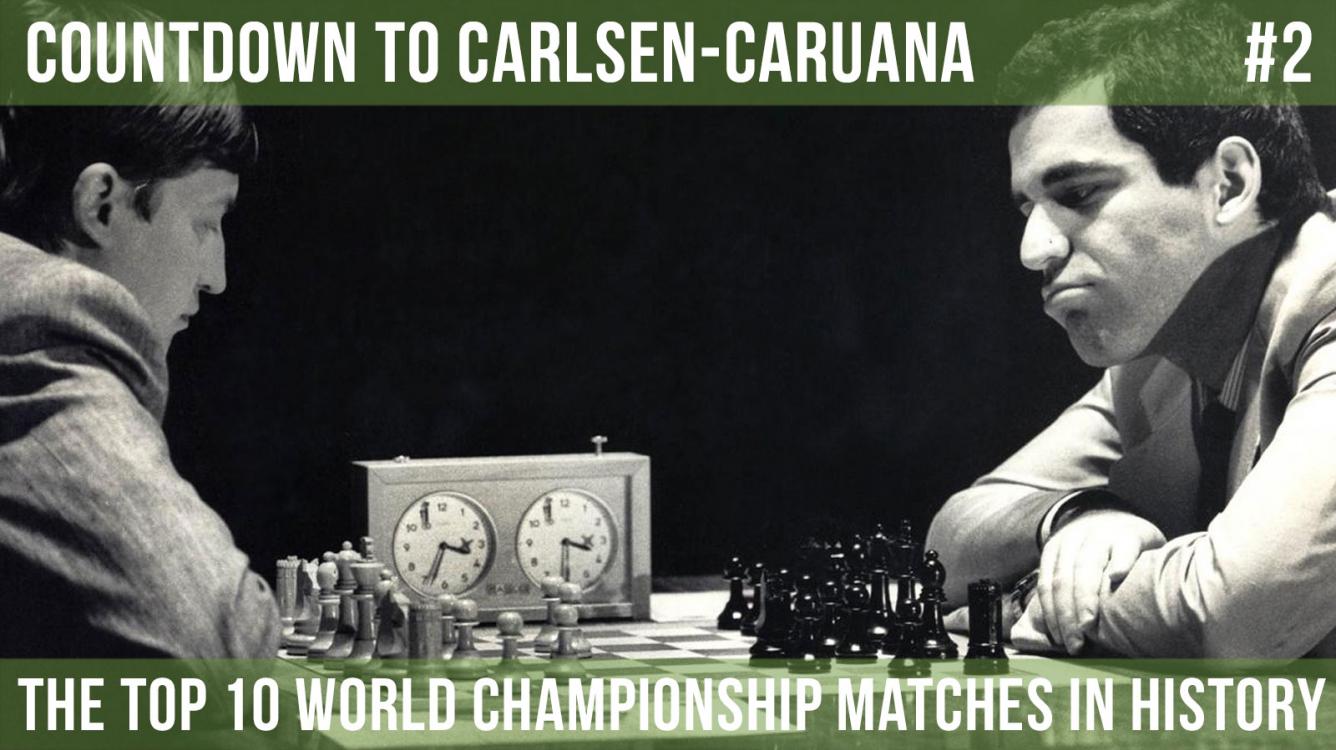
Karpov vs. Kasparov | World Chess Championship 1987
Coming in at number two on Chess.com's list of Most Exciting World Championships in History is the fourth installment of the epic clash between Anatoly Karpov and Garry Kasparov.
By "fourth," that means both the fourth chronological time they played a match, and the fourth match to appear on our list! Recall that their 1990 match finished 10th, their 1985 match finished fifth, their aborted 1984 match finished third, and now their 1987 match in Seville, Spain, finished second!
In total, four of the five Karpov-Kasparov encounters are in the top 10. That's fitting since none of the Chess.com content team put all five matches in his personal top 10—everyone had three or four matches listed among the best.
This is also one of just three matches to receive at least one first-place vote. NM Sam Copeland had the 1987 match as his most exciting of all time. Recall that NM Dane Mattson already picked Botvinnik-Bronstein 1951 as his top (eighth place overall). As you can probably figure, every other judge (six) picked another match as number one.
Two other judges picked this as the second-best match (the co-directors of content, Peter Doggers and this author). Interestingly, three judges left it off their lists completely!
So why did the fourth match in four years not grow tiresome to the public? Well, it was the first one not to touch Soviet soil at all, so that may have helped the West access the match in those pre-Internet days. That kind of exposure may have even propelled him to some notoriety like an appearance a few years later on "Late Night with David Letterman" and then a season-long game by telephone with the host.
But the chess was the thing of course. The match went the full distance as eight of the 24 games were decisive. The final two games will be remembered forever, as Kasparov "blundered" in the penultimate game, then "won on demand" in the final game to end the match 12-12 and keep his title.
To this day, he is still immensely proud of that win in game 24. Before we get there, let's see how Karpov took an early lead. He won in game two as Black with a convincing effort:
Then after two wins by Kasparov and one more for Karpov, the reigning champion took his first lead in game 11. It looked like Kasparov was just biding his time and may even settle for a repetition, but Karpov then went for too much and inexplicably put his rook on a verboten square.
What really set this match apart, however, were games 23 and 24. By this point Karpov had tied it again, and then yet another lead change occurred when Kasparov mis-analyzed a tactic in game 23.
Although far more complicated than Karpov's hanging of a rook, this one had the same effect. Kasparov later called his failed salvo the "worst hallucinations of my career" and a "catastrophe."
Just watch how fast those final moves came (until the thunderbolt Bh6 that is!). Kasparov even neglects to write down the moves:
And then came a game for the ages.
"I can look back at my chess career and pick out more than a few crisis points, but only one Mount Everest," Kasparov wrote years later. He said he was being punished by Caissa for not playing aggressively enough, and that he probably didn't deserve to hold on to the title without winning at least one game in the second half of the match (game 11 was his last previous win).
Here's a video of Karpov resigning and the thunderous applause that followed. Kasparov called it the loudest of his career outside of the Soviet Union.
"I had done what Karpov had failed to do in 1985," Kasparov wrote. "[I] won the final game and drawn the match to retain my title. This time I would have a good, long time to enjoy it."
Coming up next: Number 1 on our list!
The Most Exciting World Chess Championships Ever:






